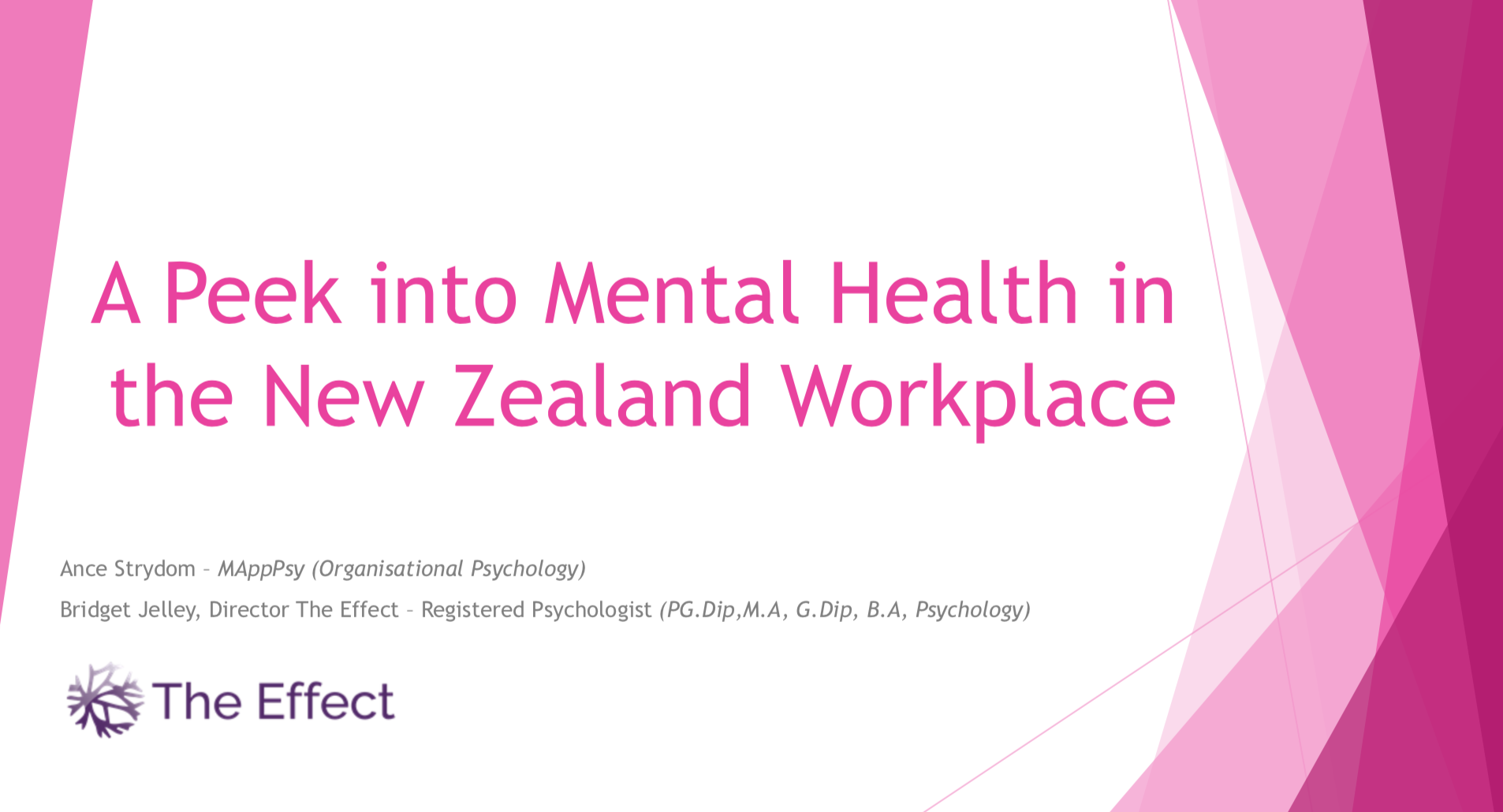Between March 2018 and July 2019 The Effect made the most of the vast range of NZ professionals we have access to by surveying groups we work with across a range of industries on their take on mental health in the New Zealand (NZ) workplace, as well as their personal experience of mental health.
In summary, the data showed that NZ organisations, among those surveyed, were generally good at collecting standard employee data such as turnover and absenteeism, moderately good at recording data around productivity, mental health and work stress among employees, but not very active when it came to identifying when mental health was at the root of employee absenteeism and turnover.
Only 4% of respondents reported their organisation to have a visible risk register. Admittedly, a reasonable number (34%) responded ‘not sure’, indicating that a risk register may be present without their awareness. This, however, begs the question, how useful is a risk register that is not visible to employees?
The majority of respondents (76%) agreed that their organisation did implement mental health initiatives, although only about 35% could say with certainty that these initiatives were evaluated for effectiveness. Evaluation is foundational to the roll-out of any service, particularly ones designed around improving and supporting the mental health of employees, yet many organisations spend large amounts of money to implement initiatives, and neglect to evaluate.
Evaluations allow us to draw conclusions about the usefulness of initiatives, as well as get feedback directly from those affected. How else would we know if we are focussing on the right things? Not to mention, it gives an ability to justify the allocation of resources. Conversely, we also frequently see organisations collecting data, without following the data up with any relevant action - a big no in our books as this is a sure way to create survey fatigue and, even worse, employee disengagement and cynicism. Our advice? For the most effect, and less risky investments, go for a wrap-around service that guides the organisation through staged action, from start to finish, whatever that may look like (e.g., coaching, facilitation, mental health first aid training etc), based on data collection pre and post initiatives. Pre-evaluation informs the right actions are taken, and post evaluation allows the assessment of effectiveness and ROI.
About half of respondents felt that their leadership did care about mental health but that leaders were not as ready to actually bring mental health considerations into business decision making.
A surprising number of respondents, 64%, reported having experienced extreme stress over the course of the year, and felt that the stress had had a significant negative impact on their physical health, work attendance and productivity at work.
Work was cited as a source of stress by 87% of those who had admitted to experiencing extreme stress.
Almost half of the sample admitted to having taken time away from work due to mental health related reasons.
Overall, our research demonstrated that organisations, at least from the perspective of the employee, are starting to make strides in being more active in the area of mental health, but the data still indicates that there is still much room for improvement. The data also highlights to us that stress and poor mental health is a common experience shared by a variety of employee groups, and that it has very real implications for organisations that warrant a deeper look, and a more serious commitment.
Have a look at what our research showed in more detail by clicking on the slideshow below:



